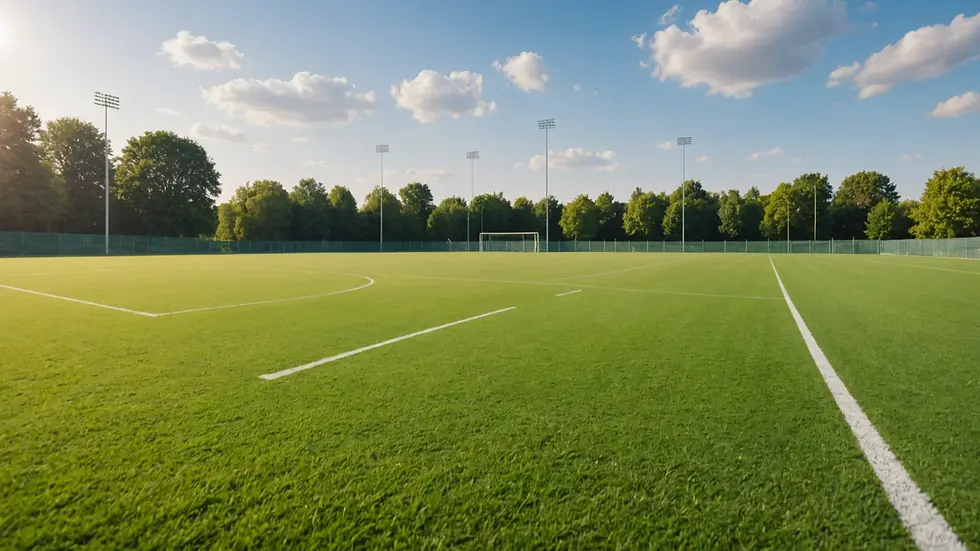How can a sport psychologist support the mental and emotional well-being of young athletes?
- Dr Paul McCarthy

- Feb 7, 2025
- 4 min read
Updated: Feb 12, 2025
In the fast-paced world of sports, the mental and emotional well-being of young athletes is more crucial than ever. Physical training and skill enhancement are vital, but the psychological aspects of performance must not be overlooked. This is where a sport psychologist steps in. By focusing on the mental challenges faced by athletes, sport psychologists help young athletes build emotional strength and improve their overall performance.
Sport psychologists specialize in understanding the psychological processes that influence sports performance. They assist young athletes in dealing with competition pressures, personal expectations, and training demands. By nurturing emotional resilience, concentration, and motivation, sport psychologists enable athletes not only to excel in their sport but also to enjoy a healthier relationship with it.
The Role of a Sport Psychologist Support
Sport psychologists are experts who apply psychological concepts to boost athletes' performance and personal growth. Their goal is to enhance mental skills, develop strategies for challenges, and promote a positive mindset.
A key focus for sport psychologists is helping young athletes build mental toughness. This includes maintaining focus during competitions, managing stress, and staying motivated after setbacks. For example, studies show that athletes who work on mental toughness can improve their performance under pressure by up to 25%. Through effective mental strategies, sport psychologists allow athletes to confront challenges confidently.
Personalized techniques are employed based on each athlete's needs. Examples include visualization exercises, relaxation methods, and methods for setting achievable goals. These practices can lead to marked improvements in an athlete's performance and well-being.
Enhancing Focus and Concentration
Focus and concentration are essential, especially in sports filled with distractions. Whether it’s noise from the crowd or personal distractions, young athletes often find it challenging to keep their minds on their tasks. A sport psychologist can teach athletes concentration techniques, including mindfulness exercises.
Mindfulness helps athletes focus on the present, which can enhance performance. For instance, before an important game, a young athlete can practice mindful breathing. This simple exercise can reduce anxiety by up to 40%, allowing them to channel their energy more effectively during competition.
Coping with Anxiety and Stress
Anxiety is a common issue in competitive sports, especially for young athletes who may feel excessive pressure to succeed. Sport psychologists guide athletes in identifying the sources of their anxiety and developing effective coping strategies. Techniques such as deep breathing, progressive muscle relaxation, and cognitive restructuring are useful for calming nerves.
By helping athletes reshape negative thoughts into positive affirmations, sport psychologists enable them to feel more in control and confident in their abilities. Research indicates that effective mental training can reduce performance anxiety by as much as 30%, significantly enhancing competitive performance.
Building Resilience and Overcoming Setbacks
Setbacks are an inevitable part of sports, whether it's losing a match or dealing with injuries. Resilience, the ability to recover from challenges, is crucial. Sport psychologists encourage young athletes to adopt a growth mindset—viewing failures as opportunities for improvement.
For example, a young athlete who misses a key shot in a game can learn to reflect on that experience. Instead of dwelling on it as a failure, they can identify what they can improve, making them stronger for future challenges.
Improving Communication and Team Dynamics
Team sports introduce unique dynamics that can impact performance. A sport psychologist can enhance communication skills among teammates, creating a more supportive environment. This can lead to improved teamwork and collaboration on the field.
By facilitating discussions about roles, responsibilities, and strategies, sport psychologists help athletes express their thoughts and feelings better. Enhanced communication within teams can lead to a 20% increase in overall team performance, showing the importance of effective interactions in sports.
Enhancing Motivation and Setting Goals
Motivation often fluctuates, especially among young athletes facing various stressors. A sport psychologist assists in setting realistic, achievable goals that inspire purpose in training and competition.
Utilizing the SMART criteria (Specific, Measurable, Achievable, Relevant, Time-bound), psychologists guide athletes to create both short-term and long-term goals. This structured approach encourages ownership of their development and can lead to a 15% increase in motivation levels, helping athletes to not only perform better but also enjoy their journey.
The Path to Success
The involvement of a sport psychologist is instrumental for young athletes as they navigate the complexities of the sports world. By honing in on the mental and emotional dimensions of athletic performance, sport psychologists equip athletes with the skills essential for overcoming challenges, managing stress, and building resilience.
As young athletes enhance their mental toughness, they improve their performances and cultivate a positive relationship with their sport. A balanced approach that prioritizes physical and psychological health allows young athletes to flourish in their athletic journeys.

In summary, engaging with a sport psychologist equips young athletes with essential tools for their sports journey. As we increasingly acknowledge the importance of mental health in athletics, creating environments supportive of psychological well-being will enhance young athletes' success and overall wellness in sports and in life.
Free Courses Online








